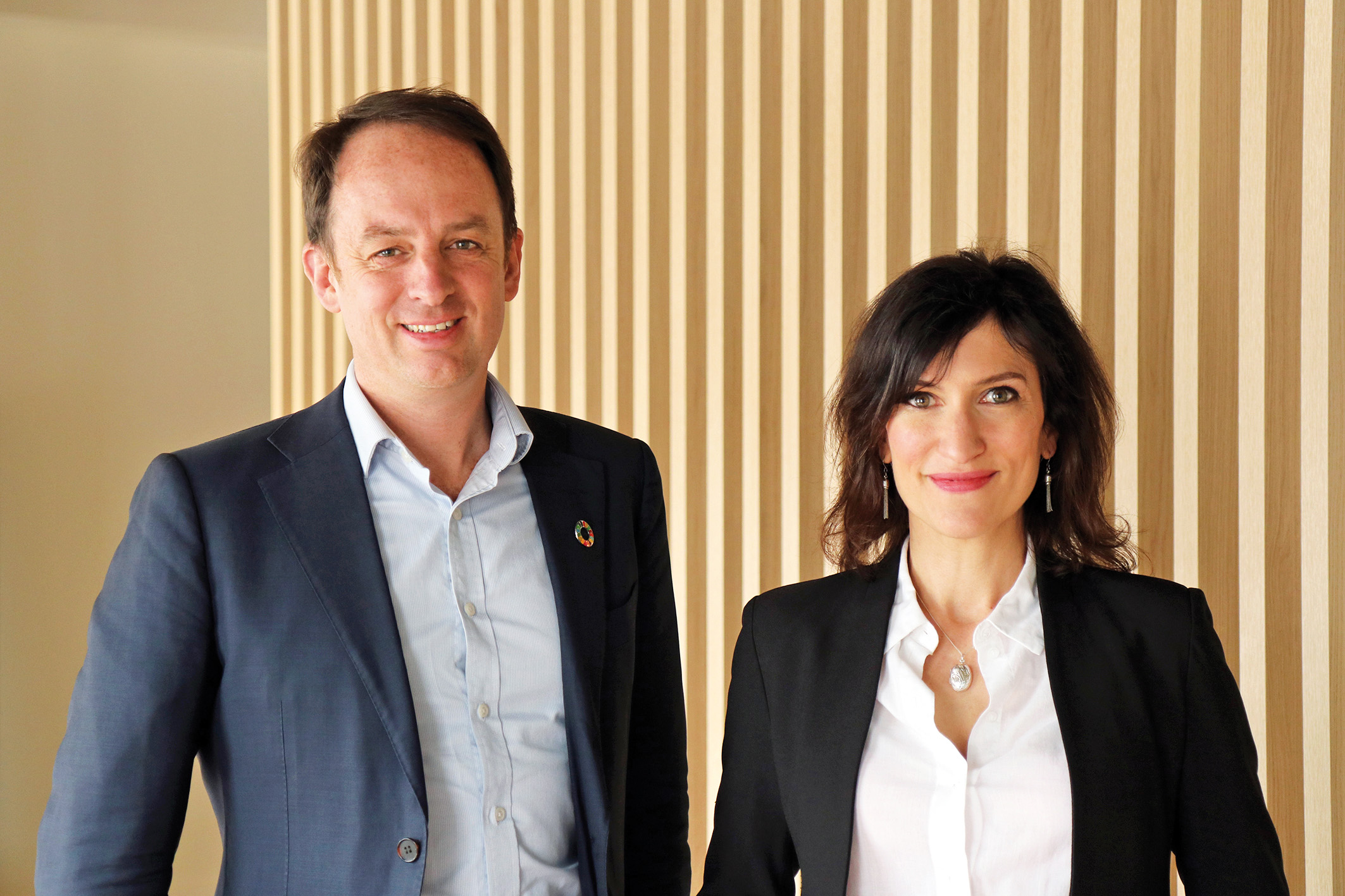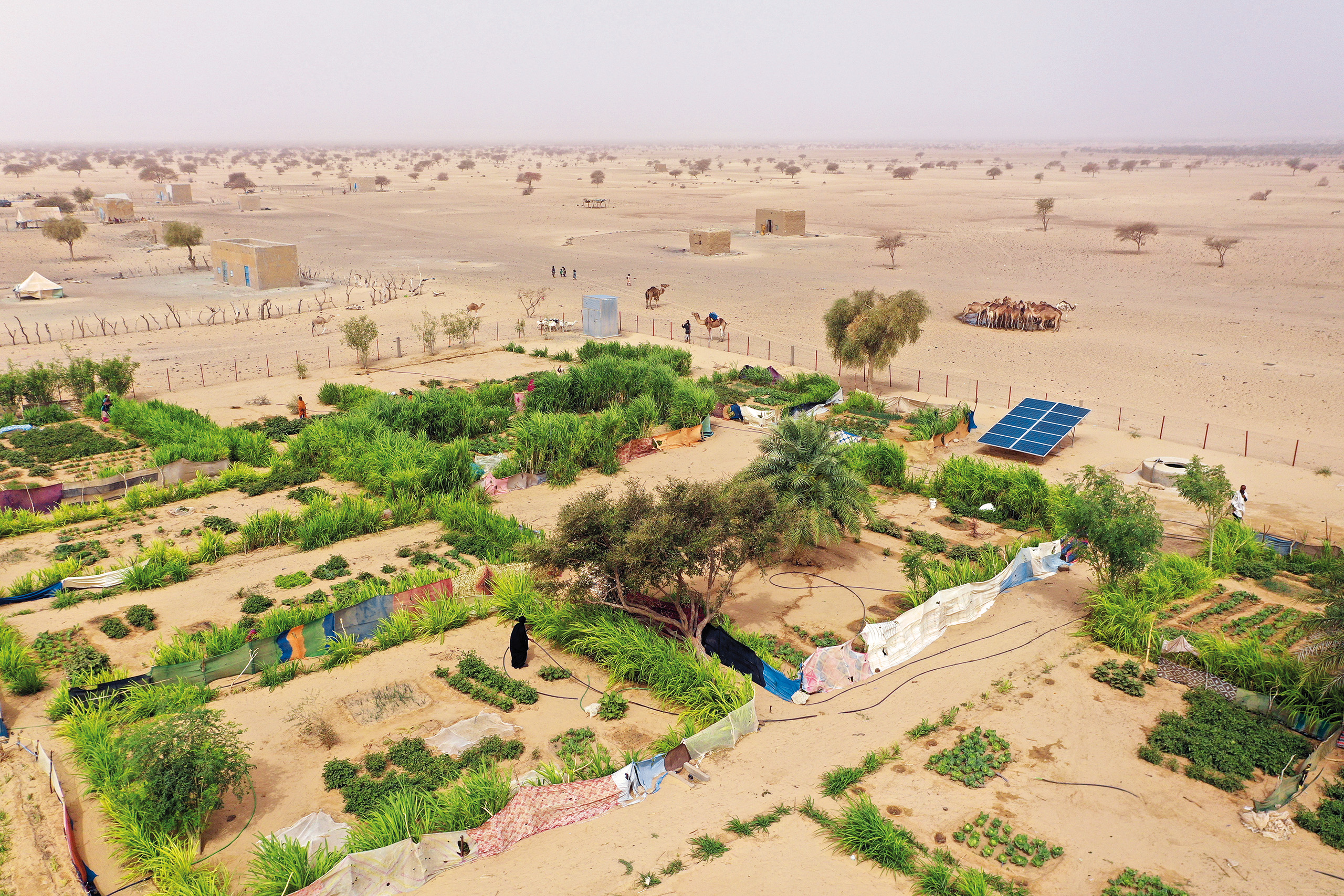Shaping tomorrow’s energy landscape

The urgency of climate change is forcing us to rethink our economies. The energy transition emerges as central in the fight against climate change.
The response requires both adaptation measures, such as the renovation of buildings or urban greening, and mitigation actions, aimed at reducing greenhouse gas emissions by using sustainable, low-carbon resources. The energy transition and the development of solutions such as renewable energies, energy efficiency, green hydrogen and desalination using renewable energies offer an opportunity for economic diversification and innovation needed to combat climate change.
Energy transition: the promise of green hydrogen
With a view to building a climate-neutral society by 2050, green hydrogen appears to be a promising energy vector for energy-intensive sectors and/or applications that are hard to decarbonise – such as the steel industry, the chemical industry and long-haul maritime transport. Unlike grey hydrogen, which is produced from fossil fuels, green hydrogen is obtained from renewable energy sources.
The emergence of a global hydrogen economy presents long-term opportunities for Africa in particular: by stimulating low-carbon industrialisation and local job creation and thus preventing the global decarbonisation gap from widening any further.
In sub-Sahara Africa 600 million people still have no access to energy, while demand is expected to quadruple over the next 20 years. The large-scale development of green hydrogen would offer a double opportunity: firstly, renewable energies could be deployed at a large scale and facilitate energy independence, and secondly, green industrialisation could drive economic growth. This prospect has taken on added importance, particularly with the EU applying cross-border adjustment mechanisms (CBAM), taxing carbon-intensive imports from 2026.
A concerted Belgian approach
Belgium is an internationally recognised leader in the sector. Many Belgian companies and institutes are already active in the hydrogen value chain. Against this backdrop, Enabel organised two green hydrogen round tables in 2023, initiating reflection on the potential role of development cooperation actors in the emergence of this sector in Africa. A country analysis was conducted for this purpose. The round tables brought together both public actors, including the cabinets of the Minister of Development Cooperation and the Minister of Energy, and private players, such as John Cockerill and CMB.TECH.
Acting as a facilitator, Enabel identified four areas of intervention: (1) governmental and institutional support, (2) development of the private sector ecosystem and low-carbon industrialisation, (3) strengthening local competence and expertise, and (4) access to finance (through the Belgian investment company, BIO-Invest). These round tables helped to establish a common understanding of the role of development actors in this sector and to validate actions identified in a number of priority countries, such as Morocco, Mozambique and Namibia.
As part of this drive for greater collaboration, Enabel is pursuing discussions with the European Union, the Belgian government and the private sector, with a view to setting up tangible projects for an extremely promising sector.







